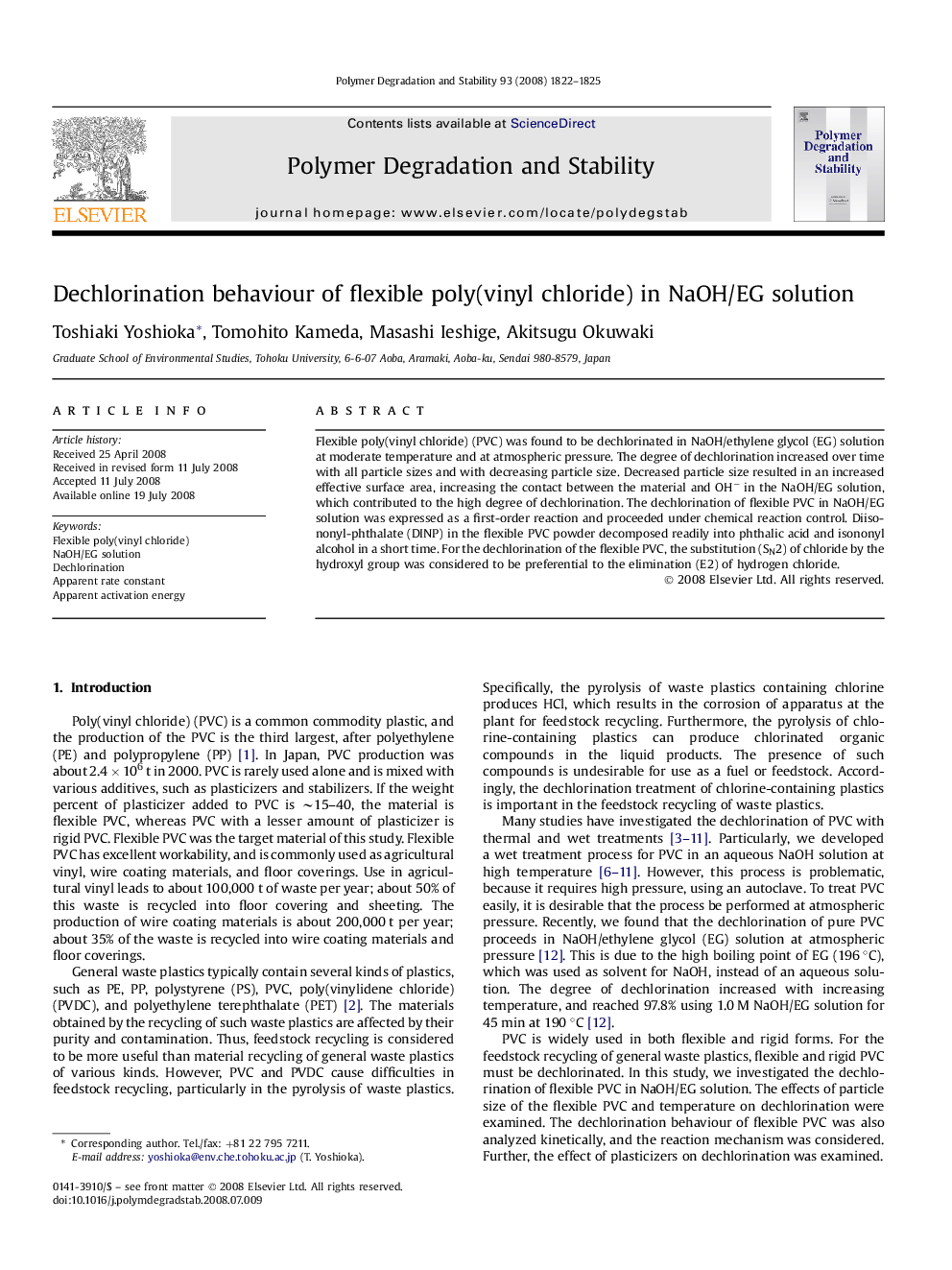| Article ID | Journal | Published Year | Pages | File Type |
|---|---|---|---|---|
| 5203467 | Polymer Degradation and Stability | 2008 | 4 Pages |
Abstract
Flexible poly(vinyl chloride) (PVC) was found to be dechlorinated in NaOH/ethylene glycol (EG) solution at moderate temperature and at atmospheric pressure. The degree of dechlorination increased over time with all particle sizes and with decreasing particle size. Decreased particle size resulted in an increased effective surface area, increasing the contact between the material and OHâ in the NaOH/EG solution, which contributed to the high degree of dechlorination. The dechlorination of flexible PVC in NaOH/EG solution was expressed as a first-order reaction and proceeded under chemical reaction control. Diisononyl-phthalate (DINP) in the flexible PVC powder decomposed readily into phthalic acid and isononyl alcohol in a short time. For the dechlorination of the flexible PVC, the substitution (SN2) of chloride by the hydroxyl group was considered to be preferential to the elimination (E2) of hydrogen chloride.
Related Topics
Physical Sciences and Engineering
Chemistry
Organic Chemistry
Authors
Toshiaki Yoshioka, Tomohito Kameda, Masashi Ieshige, Akitsugu Okuwaki,
